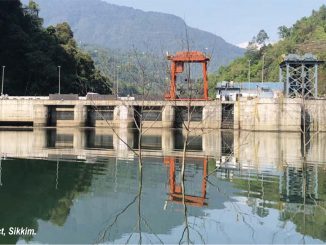 Manoj Tanwar has been at the forefront of the power sector’s evolution. He has over 19 years of experience in the sector, encompassing facets such as renewable energy, energy storage, conventional power generation, power distribution and green hydrogen deployment in the utility, commercial and industrial domains. Through his career, Tanwar has spearheaded client expansion, transitioning from utilities (discoms) to large-scale industrial clients. At present, he plays a pivotal role in offering policy and regulatory guidance for green hydrogen/ammonia production initiatives within the Greenko Group. He also holds pivotal roles in business development, contract management, regulatory affairs, project management and strategic planning. His expertise extends across various business functions, including sales, strategy formulation, contract administration, commercial and regulatory compliance, due diligence, and business performance optimisation.
Manoj Tanwar has been at the forefront of the power sector’s evolution. He has over 19 years of experience in the sector, encompassing facets such as renewable energy, energy storage, conventional power generation, power distribution and green hydrogen deployment in the utility, commercial and industrial domains. Through his career, Tanwar has spearheaded client expansion, transitioning from utilities (discoms) to large-scale industrial clients. At present, he plays a pivotal role in offering policy and regulatory guidance for green hydrogen/ammonia production initiatives within the Greenko Group. He also holds pivotal roles in business development, contract management, regulatory affairs, project management and strategic planning. His expertise extends across various business functions, including sales, strategy formulation, contract administration, commercial and regulatory compliance, due diligence, and business performance optimisation.
According to him, power demand in India is increasingly witnessing intra-day variability, as is evident from the faster increase in peak demand than in base load and trends in short-term power procurement in specific hours of the day or month. Meanwhile, incremental sources of supply are predominantly characterised by their infirm nature and variability. The proportion of renewable energy within the overall supply mix is projected to surpass 50 per cent by the year 2030. The confluence of these factors necessitates a greater allocation of flexible resources to effectively manage fluctuating demand. However, in comparison to other major renewable energy countries, India currently possesses the lowest proportion of flexible resources, estimated at approximately 11-18 per cent.
By 2030, the flexibility requirements stemming from coal-based plants, particularly in addressing intra-day variability, are anticipated to surge to around 150-180 GW from the 55-60 GW observed in 2022. Moreover, coal-based plants may encounter constraints in delivering the requisite flexibility, both in terms of capacity and cost-effectiveness. In light of these challenges, energy storage has emerged as a viable solution, offering cost-effective flexibility to the grid.
Tanwar’s professional journey has seen him operate across diverse geographies, including India, South Africa and Indonesia. He is an electronics and mechanical engineer by training, and holds an MBA with specialisation in Finance and Strategy from IIM Bangalore.



